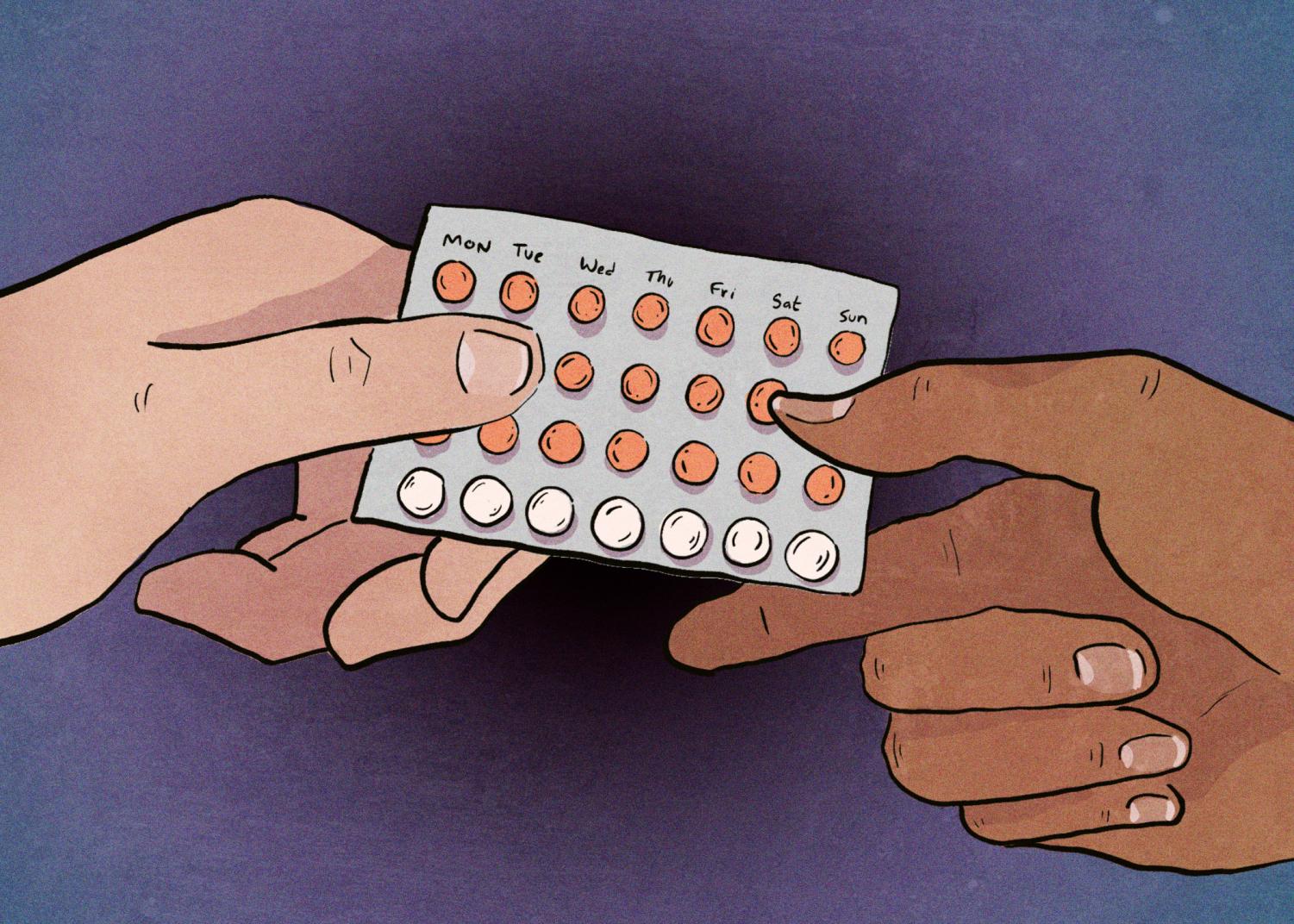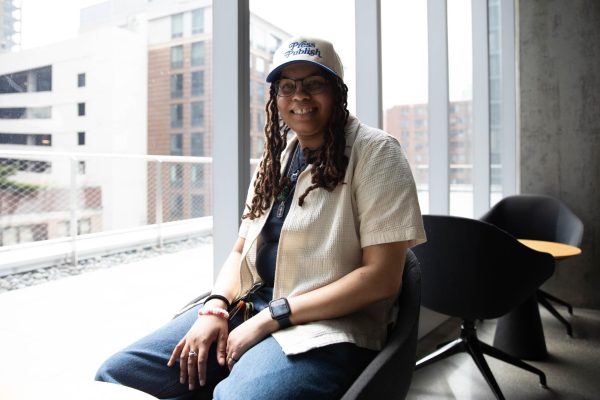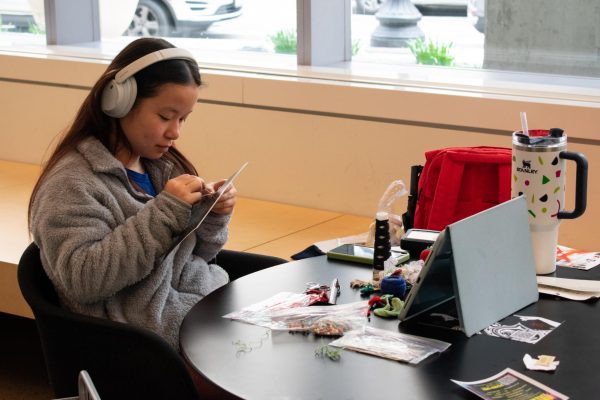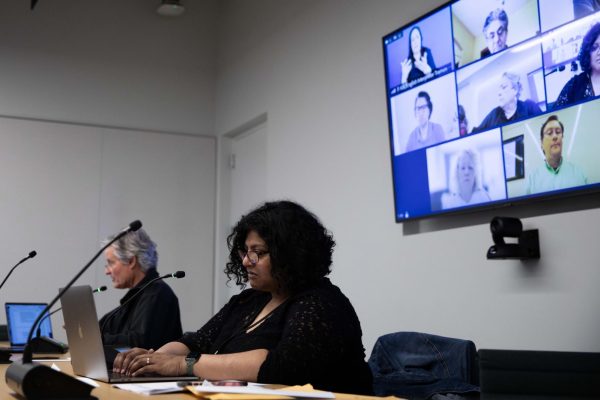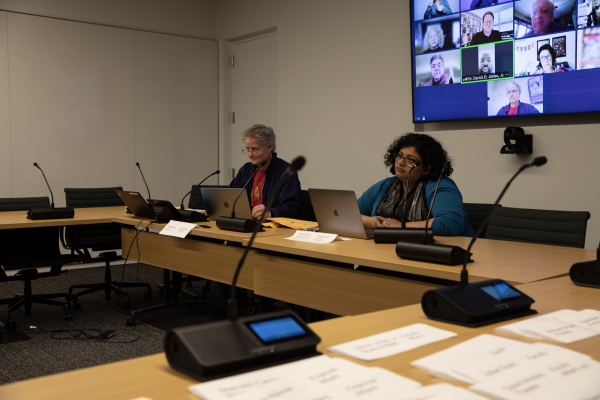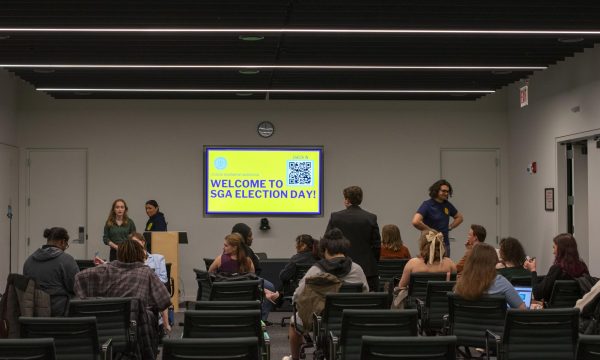Alpha Kappa Alpha and Soul Sisters address reproductive health rights for Black women
March 17, 2023
During her freshman year, Adriana Brown, a third-year marketing student, was taking birth control pills. Shortly after, she began experiencing side effects like depression.
However, when she voiced these concerns to her doctor, Brown said she was dismissed.
The doctor told her that “it’s just one of the symptoms. It should go away. It shouldn’t be permanent,” Brown said. “That’s really unfortunate [to] not only having these symptoms, but I also wasn’t really taken seriously when I tried to address them with the doctor.”
After that, Brown decided to stop taking the pill. Since doing so, she has started to feel better.
Brown is the director of communications and marketing of Soul Sisters, a student organization designed to foster sisterhood among Black women.
Members of Soul Sisters and of Alpha Kappa Sorority, an organization established by Black female university students, recently held an event at the Student Center to discuss reproductive health and justice for women of color and resources available throughout the campus and the city.
“Bringing awareness and talking about it helps other people know that it is okay to advocate for themselves when it comes to their health, that’s why we think it’s important to share our stories,” Brown said.
Brown said she joined Soul Sisters last year because she wanted to find a community of people who looked like her and thought like her.
“Black people, and Black women especially, aren’t treated the same way throughout the health care system as their white counterparts,” Brown said.
According to the Kaiser Family Foundation, a 2019 survey of 30 areas throughout the country presented that Black women had 38% of the abortions. Nearly half of all women of color between ages 18-49 live in states where abortion has become or will likely become illegal.
The overturning of Roe versus Wade, which federally protected women to receive an abortion, “will likely result in women of color facing disproportionate barriers to accessing abortions,” as reported by the foundation’s 2022 article.
“Women of color have more limited financial resources and may face other increased barriers to accessing abortions if they need to travel out of state for one,” according to the foundation.
“There’s so much that we bear on our shoulders as Black women [and] we really don’t get the space to talk about it, and if I’m being honest, Black women have never had bodily autonomy since slavery,” said Charlene Coates, a president of the Chicago chapter of Alpha Kappa Alpha Sorority.
During the event, Coates shared her positive experience with getting an intrauterine device and free Lyft credits used to get to the appointment through her school organization called Students For Reproductive Justice; she said it made her reflect on other members of her community who are not that lucky.
Jewel Baker, vice president of Soul Sisters and a third-year film and television major, said she views the lack of Black female doctors as the root of many reproductive health and justice issues.
Out of all active physicians in the United States, 56.2% were white, while only 5% were Black, according to 2018 statistics from the Association of American Medical Colleges.
Brown said activism and “learning how to stand up for yourself” around this issue is important.
“We’re starting to create a better safe space for us but I think there’s so much more improvement, especially within the actual large scale hospitals that we see there’s not many Black doctors there, there’s not many female doctors essentially too,” Baker said.


